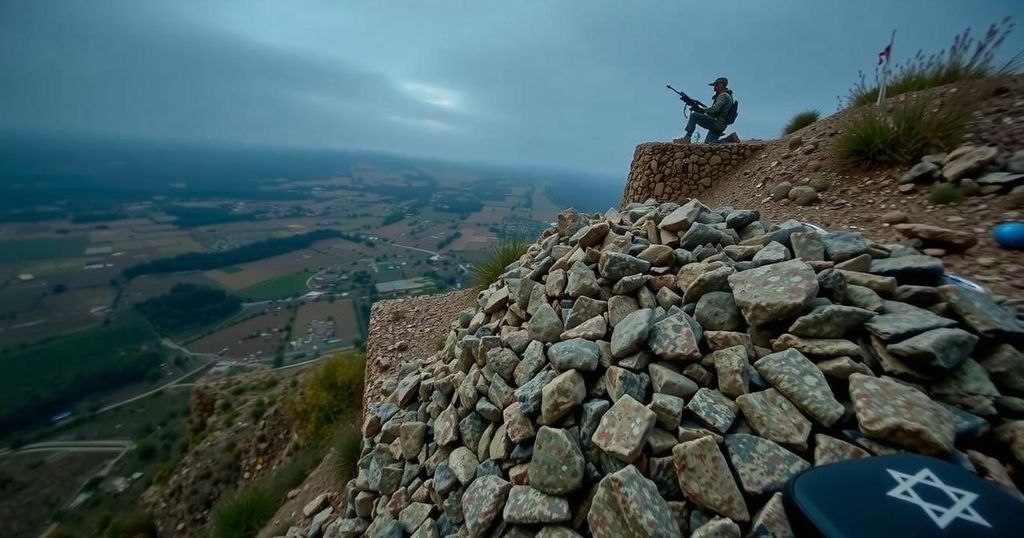Russia Increases Military Presence Near Golan Heights to Deter Israeli Actions

Russia has augmented its military presence near the Israeli-occupied Golan Heights to prevent escalations by Israel. Reports indicate increased construction on a separation wall by Israel, prompting accusations of ceasefire violations. Concurrently, joint operations between Russian and Syrian forces aim to target extremist groups and stabilize the area, while concerns over Israeli airstrikes persist.
On November 19, the Lebanese daily Al Akhbar reported that Russia has amplified its military presence in southern Syria, particularly around nine observation posts near the Israeli-occupied Golan Heights. This move is in alignment with the Syrian government’s objectives, aiming to deter any potential escalations initiated by Israel. The Russian military has reinforced its positions within Daraa and Quneitra governorates, coinciding with Israel’s renewed efforts to construct a separation wall in the area, mirroring similar barriers erected along borders with Lebanon, Egypt, Gaza, and the West Bank.
Recent developments indicate that the construction of this wall has prompted the United Nations to accuse Israel of breaching a ceasefire agreement that has remained in effect for half a century. Analysis of satellite imagery released by the Associated Press has revealed significant construction activities along the Alpha Line, extending over 7.5 kilometers, guarded by armored vehicles and tanks. Former Israeli Defense Minister Avigdor Lieberman conveyed concerns over Syria’s utility as a logistics base for adversaries, expressing a willingness to reclaim the Syrian portion of Mount Hermon if the situation persists.
Heightened Israeli military activities in Syrian territories coincide with an increase in joint operations by Russian and Syrian armed forces, aimed at targeting factions supported by Western powers. Al Akhbar has reported that Russian troops are actively engaged in aerial and ground surveillance to bolster security and facilitate the return of displaced populations, thereby contributing to regional stability.
Haidar Mustafa, a columnist for The Cradle, reiterates that all Israeli actions in the Golan Heights, including the imposition of Israeli citizenship and settlement expansions, are deemed egregious violations of international law. Furthermore, Israeli air missions against Syria have surged dramatically since the escalation of conflict with Lebanon in late September, with frequent strikes occurring in major urban centers, raising security concerns even for Russian bases in the region. Such developments have prompted Russian forces to activate their air defense capabilities in response to these incursions.
The Russian military presence in southern Syria is a strategic response to ongoing tensions between Israel and Syria. Since the civil war in Syria commenced, various actors, including Israel, have influenced the region’s stability. The Israeli government has undertaken the construction of a separation wall, which has been perceived as a violation of international agreements and a potential catalyst for increased hostilities. The involvement of Russian forces aims to establish a buffer that safeguards Syrian sovereignty while also countering Israeli expansions in the Golan Heights. The historical context of the Golan Heights holds significant military and political implications for both nations, making this region a focal point for international scrutiny.
In summary, Russia’s escalation of military positioning near the Israeli-occupied Golan Heights serves not only to deter potential Israeli advancements but also to reinforce the Syrian government’s authority and stability in a historically contested area. The construction of the separation wall by Israel, characterized as a flagrant infraction of international law, has elicited strong responses from both Russian and Syrian forces, emphasizing the complex interplay of military strategies and diplomatic relations in the region.
Original Source: thecradle.co








